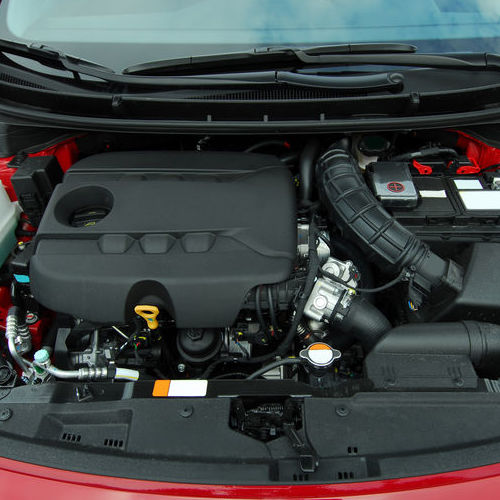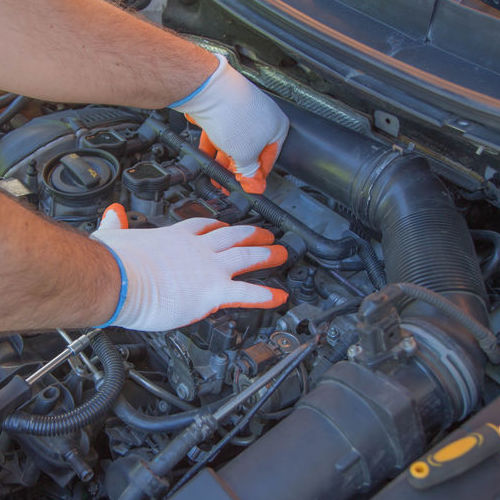
Does a tune up make your car run better?
In general, when you get a tune up, your car will run better. Of course, “tune-up” means different things to different people. Some people think of tune-ups just as a check up to make sure the car is running OK and everything is working right. Others think of tune-ups in terms of the engine. In truth, a tune-up is a mix of an overall inspection with a focus on your engine and engine components to ensure that all the parts are working right, that fluid levels like oil and coolant are adequate, and the vehicle overall is operating properly. This service could also include replacing parts like spark plugs or air filters or making recommendations for repairs. When you have a Japanese import or other import vehicle that’s ready for tune-up services in Mission Viejo, CA, you want to turn to the import experts at Japanese Car Specialties. Set up a service appointment by calling 949-583-0811.
What does a tune up consist of?
When you get a tune up, it’s going to include an inspection as well as the actual tune-up. Automotive technicians inspect your engine’s fuel system and all components to make certain you have a clean, unclogged fuel filter. They will also check to ensure the fuel injector is clean and the fuel pump is not damaged. The spark plugs, PCV valve, timing, air filters, and oil and coolant levels are also checked. The actual service may include replacement of spark plugs, rotors, wires, or other parts. Fuel, oil, and air filters may also be replaced.
What are signs your car needs a tune up?
Anytime your car doesn’t seem to be operating right is a good time to take it into the shop for a tune-up. But, here are some typical issues that alert people it’s time to get your car checked out:
- Check engine light comes on
- The vehicle stalls or lags when accelerating
- Your fuel economy and gas mileage are affected
- Problems with brakes such as noises like whining or scraping
- Problems with rough shifting or lurching when shifting gears
- Your vehicle vibrates or shakes when braking, steering, or starting it
When should you get a tune up?
Depending on the type of vehicle you have, the intervals between tune-ups will vary. If you have an older vehicle with a non-electric ignition, tune-ups will be needed every 10,000 to 12,000 miles or at least once per year. For vehicles with an electric ignition system and fuel injection, your vehicle can go as long as 100,000 miles before needing a service. Your owner’s manual is the best resource to find out when to get the car tuned up. Of course, if you are having problems like the car stalling, you should take it in and have it checked out.
Can a tune up improve gas mileage?
Because tune-ups focus on your engine’s performance and technicians check fuel, oil, and air filters, as well as fuel pumps, your vehicle will likely improve its fuel economy. When properly done, this service can increase your gas mileage by as much as 4%. When dirty filters are changed out, your vehicle’s efficiency improves by 10%.
Will tune up fix check engine light?
Unless there is a visible problem, people sometimes ignore their check engine lights. When the light comes on, this is a good reason to bring your car in for a tune-up. Because your check engine light can signify a variety of issues, getting your car tuned-up might resolve the problem. Emissions issues caused by faulty spark plugs, for instance, might require you to replace the plugs. When you take your car to the shop, technicians can run a diagnostic to determine why the light is coming on.
Tune up vs oil change
Oil changes and tune-ups are different services. An oil change is primarily concerned with the oil levels in your vehicle and oil needs to be changed when the levels are too low or when the oil becomes dirty and makes the car less efficient. Air filters are also typically checked and replaced with an oil change.
Tune-ups are much more thorough. They involve an inspection of the engine and its parts and may require replacement of parts such as plugs or wires or rotors. Oil and coolant levels are also checked and these fluids are changed if required.
How often should you replace spark plugs?
Spark plugs are fairly durable. On average, you might expect to replace your plugs every 20,000 to 40,000 miles, depending on how often you use your car and what kind of vehicle you drive. When you get your car tuned-up, your plugs are checked and they might be replaced then. Your owner’s manual will have the best recommendations for changing your plugs.

Where to get tune up near me
When your Japanese import needs a tune up in Mission Viejo, CA, let the import specialists at Japanese Car Specialties help you. We provide a full range of auto care services for Asian and other import vehicles. Set up a service appointment with us by calling 949-583-0811.